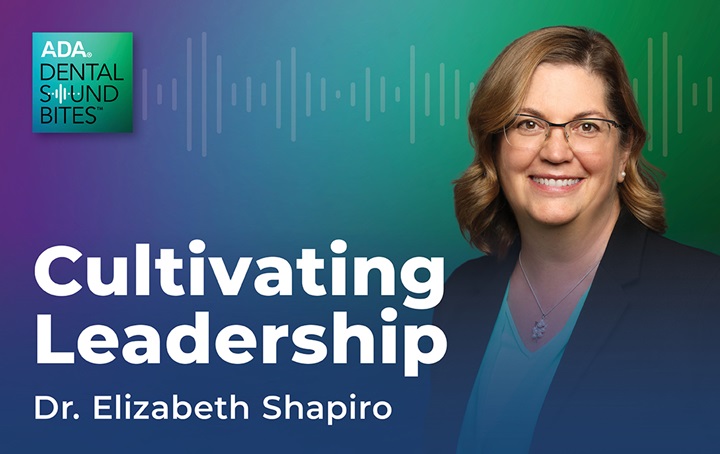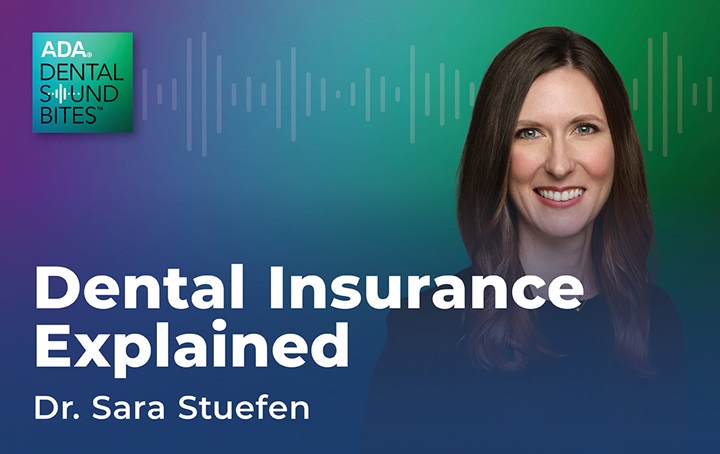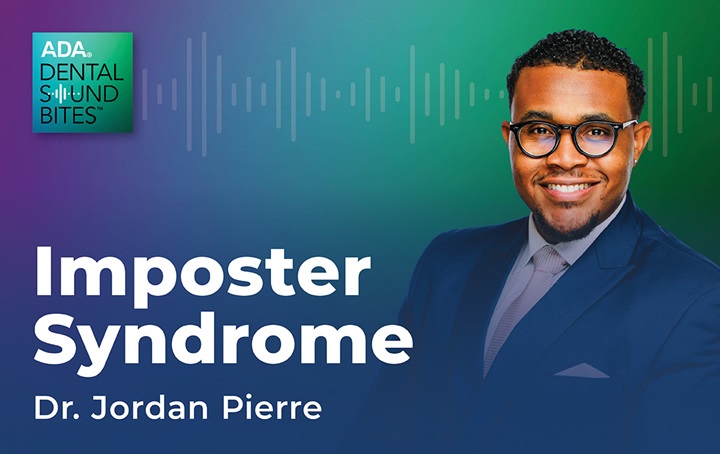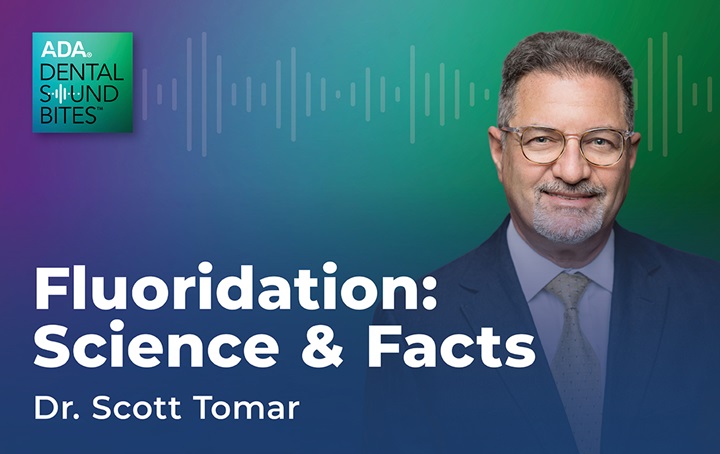You can also listen on the ADA Member App and enjoy bonus content.
Dental Sound Bites™ podcast
Real talk about dentistry’s daily wins and sticky situations from the ADA’s flagship podcast. Our hosts will chat with expert guests and share their perspectives on topics and trends that spark your curiosity and fuel your career.
S6 E06: Ethics and Dental Dilemmas
Uncomfortable conversations and sticky situations; Exploring the ethics of dental dilemmas.
Listen + Subscribe

How to develop and be strong leaders, and why it's essential for our profession's future.

Navigating the misconceptions and challenges of dental insurance.

Imposter syndrome, and how to build confidence and thrive in the face of self-doubt.

Fluoridation the the news: behind the recent developments, and the public health impact.

We're talking about the hot topics shaping the future of dentistry today.

A guide to the latest AI-driven tools and technologies that can revolutionize dentistry.
Awards + Recognitions





The views and opinions expressed in this program are those of the speakers and do not necessarily reflect the views or positions of the American Dental Association.

